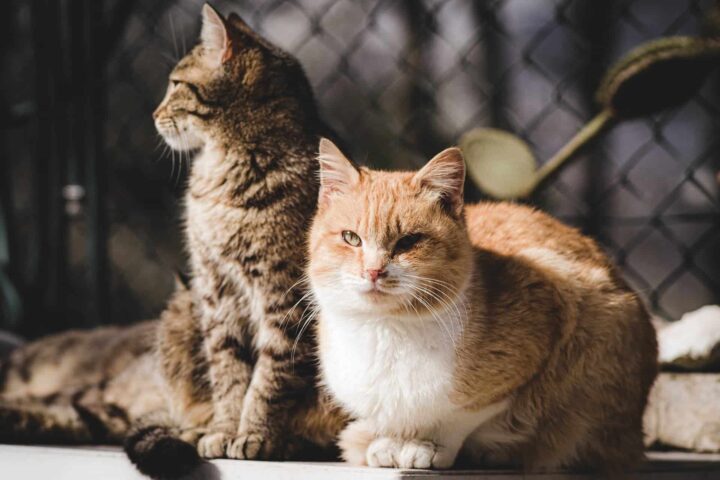Feline coronavirus is turning Cyprus into an island of dead cats, as experts and animal rights activists say the disease has likely killed almost a quarter of the million-strong population.
The Mediterranean country, sometimes called the “island of cats”, is home to the earliest evidence of the animal’s domestication and is now counting dead cats.
Since January, both stray and domestic cats have been killed by a feline coronavirus mutating into infectious peritonitis (FIP), a coronavirus strain.
However, mounting unease about the threat posed by cat Covid is growing.
According to experts, the number of cats that have died from FIP since January, when the first cases were recorded, is around 200,000.
Experts have warned that “many cats” could die if the virus circulating in Cyprus makes its way to Britain.
“In some areas, we estimate that we have lost up to a third of the local cat population,” Dinos Agiomamitis, head of Cats PAWS Cyprus and vice-president of Voice for Animals, told the Financial Mirror.
“We have no real way of knowing the exact number of casualties, as cats, when seriously ill, withdraw themselves to isolated areas to heal or pass away,” explained Agiomamitis.
Although just 107 cases have been officially reported, vets and animal advocates estimate the real figure is far higher.
“Locals who feed strays have reported that their regulars are increasingly disappearing as they succumb to the virus”.
Agiomamitis said he used to feed some 50 cats at a local cemetery, but recently, that number has dropped to 15.
He said that part of the challenge in counting cases was that, with so many strays across Cyprus, diagnosing and documenting every infection was almost impossible.
“Local veterinarians have been reporting an alarming increase in FIP cases, which started in the capital city of Nicosia in January and spread throughout the whole island within three to four months,” said Agiomamitis.
It is the first “outbreak of this extent” ever reported, with previous FIP clusters generally restricted to catteries.
The FIP outbreak in Cyprus “has never been seen in living or reported history”, as Professor Danièlle Gunn-Moore, a specialist in feline medicine at the University of Edinburgh, told UK Daily Telegraph.
UK fears
She argued that “an outbreak of this size with increasing reports of dead cats laying in the streets and suspicions that this could be a new, deadlier strain of FIP”.
Concerns in the UK have risen because many animals from Cyprus are sent to Britain for adoption.
Symptoms include fever, abdominal swelling, energy loss, and sometimes increased hostility.
The painful virus generally affects kittens and young cats.
“Should your cat develop such symptoms, you should immediately seek the assistance of a vet,” said Agiomamitis.
Currently, there are two treatment options for FIP.
An anti-COVID pill used in humans, called Molnupiravir, is not approved for animal use in Cyprus.
Another tablet approved for import in Cyprus, GS-441524, costs €3,000-7,000 for a cat weighing 3 to 4 kgs.
Animal rights groups were working with veterinary authorities to allow the import of cheaper drugs to treat FIP.
Reportedly, animal owners resort to the black market to bring medication for their beloved pets from Russia and India.
“From what we have been told, an importer has been given the green light to start bringing cheaper drugs immediately,” said Agiomamitis.
He stressed the importance of getting cats to the vet on time, as treating the illness at the beginning is paramount.
“We are hoping that the virus has completed its cycle, but we still need to take action to protect them, as the virus is still claiming cat lives”.
Cyprus is a cat-loving country whose history has long been intertwined with the furry creatures; archaeologists have found evidence of their domestication dating back 9,500 years.
At times it is claimed that Cyprus’ feline population is larger than the island’s around one million human population.










